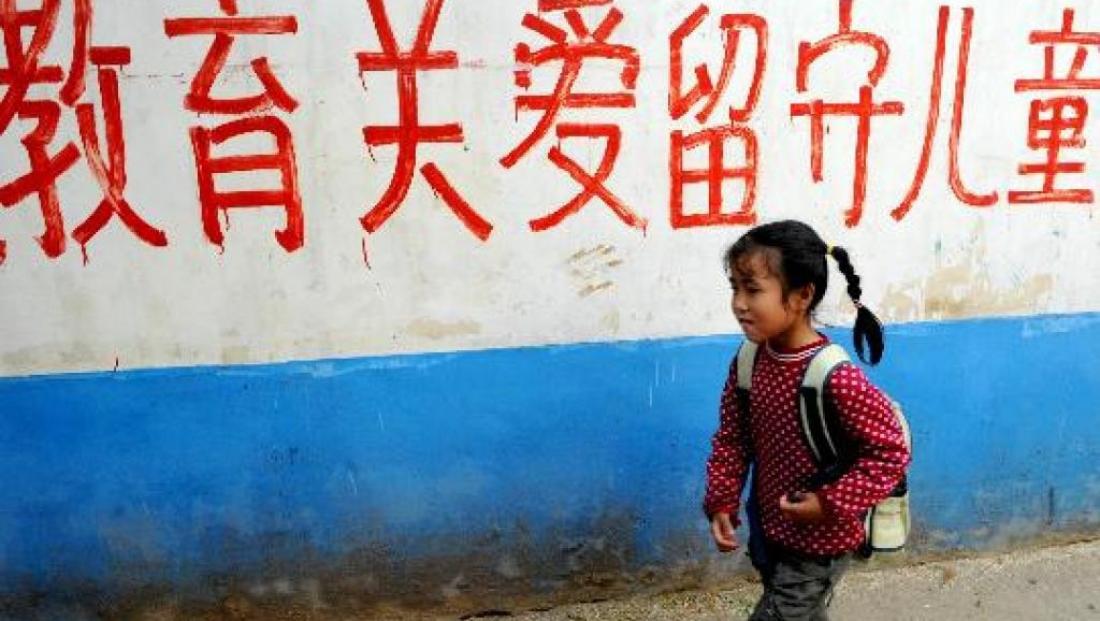A young girl walks in front of a wall that says in Chinese: “Educate and care for children left behind.” In rural China, over 28 million children under 17 are left behind by both parents, who have migrated to urban areas for work.
One in every three children in rural China under 17 years old is left behind by one or both parents, who often migrate to urban areas for work, according to the All China Women’s Federations, the state’s organisation for women’s rights. While parents could earn more to invest in education by migrating, their absence can have negative effects on children’s performance at school, according to a study led by Hongliang Zhang from Hong Kong Baptist University’s Department of Economics.
Zhang and collaborators from the University of Pennsylvania in the US, Lingnan University in Hong Kong, and the Chinese University of Hong Kong surveyed 5,000 primary school children from a rural county in the Hunan Province of China. They found that the absence of both parents reduced children's test scores by 5.4 and 5.1 percentile points in math and Chinese respectively. The impact on children with only one parent absent was insignificant, indicating that single parenting does not adversely affect children’s cognitive performance at school.
This clear result helps bring clarity to a complex topic. Previous studies have only looked at children left behind by one parent, commonly their father, or educational inputs like enrolment and study time, which have shown mixed effects.
“Our results suggest that the absence of both parents, which is quite common in rural China, is a much more serious problem in shaping the educational outcomes of the next generation than the usually considered cases elsewhere of the absence of a single parent, and therefore deserves greater policy attention,” the researchers conclude.
Lower test scores in primary school can have long-lasting impacts on children’s future education and work prospects because admissions to secondary school and university are determined by exit exam scores. To give children the support they need to succeed, the researchers encourage policymakers to create tutoring programs or address the larger issue of dual parent migration.
Further information
Associate Professor Hongliang Zhang | E-mail: [email protected]
School of Business
The Hong Kong Baptist University
Did you know?
The Chinese government set up a household registration system called the Hukou system in the mid-1950s. The aim was to bar rural residents from coming to urban areas for work. Although it gradually relaxed its control, the Hukou system still leaves migrant workers without city welfares including free public education for their children, prompting them to leave their children behind in the countryside.
----------------------------------
Asia Research News is our annual magazine to highlight exciting research studies from our partners. 25,000 copies are printed and distributed to key figures in research. Download a PDF copy from the link below or contact us if you would like print copies.



